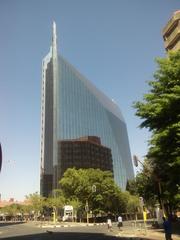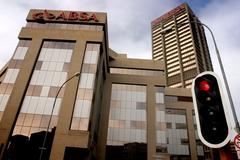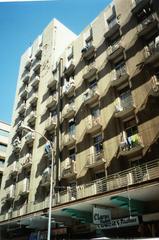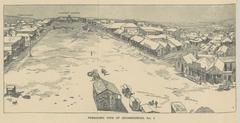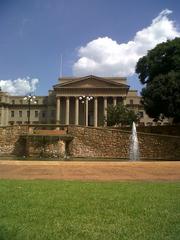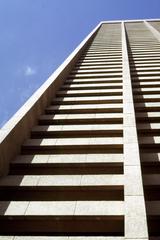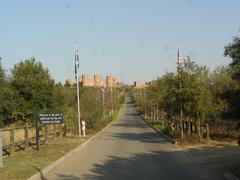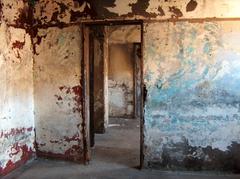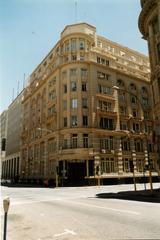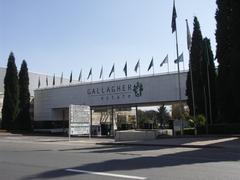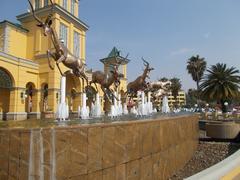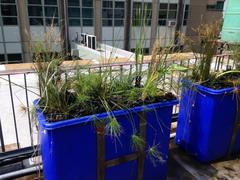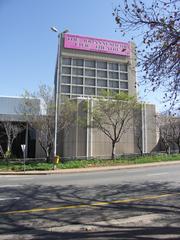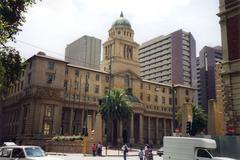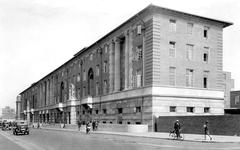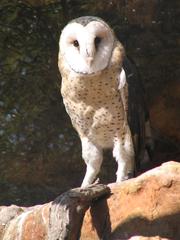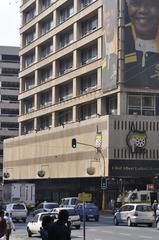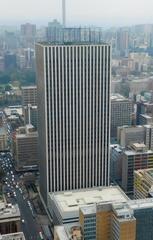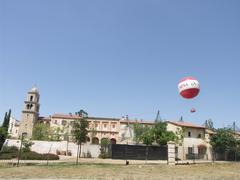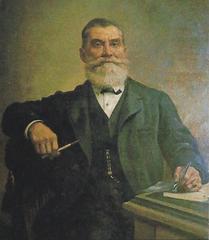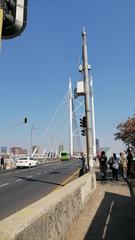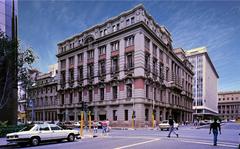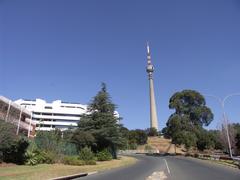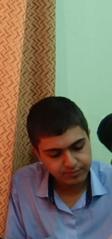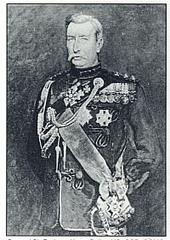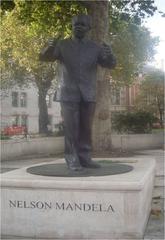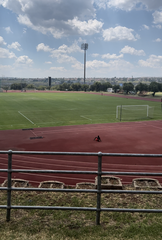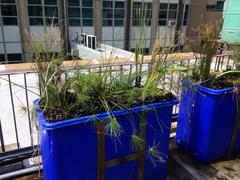Doornfontein Synagogue: Visitor Guide, Hours, Tickets, and Historical Insights
Date: 14/06/2025
Introduction
The Doornfontein Synagogue, known as the Lions Shul for the iconic lion statues flanking its entrance, stands as one of Johannesburg’s most significant Jewish heritage sites. Built in 1905 amidst a wave of Eastern European Jewish immigration, it embodies over a century of religious, architectural, and cultural history in South Africa. Today, this historic synagogue offers visitors a unique opportunity to explore the Jewish narrative within Johannesburg’s dynamic urban landscape—whether you are a cultural traveler, architecture enthusiast, or history buff (South African History Online; africansynagogues.org).
This comprehensive guide outlines the synagogue’s historical background, architectural features, cultural significance, as well as essential visitor information including hours, ticketing, security, accessibility, and travel tips. You’ll also find recommendations for nearby attractions and answers to frequently asked questions.
Historical Background and Community Foundations
Early Jewish Settlement:
The late 19th-century gold rush transformed Johannesburg into a cosmopolitan center, drawing Jewish immigrants primarily from Lithuania and Eastern Europe. By the 1890s, Doornfontein had emerged as a vibrant Jewish neighborhood, with institutions such as Hebrew schools, kosher butchers, and social clubs shaping community life (South African History Online).
Founding of the Synagogue:
Established in 1905, the Doornfontein Synagogue quickly became the spiritual and social hub for the growing Jewish community. It signaled both the community’s permanence and its aspirations in the new city, with services, Hebrew classes, and communal events anchoring Jewish identity.
Architectural Highlights and Symbolism
Design and Style:
Designed by Morris Jacob Harris, the synagogue blends Western Mannerist, Romanesque Revival, Moorish, and Eastern European influences. The most distinctive features are its twin domed towers—evocative of Lithuanian synagogues—and the two golden lion statues, symbolizing the Lion of Judah, a powerful emblem in Jewish tradition (theheritageportal.co.za; sajr.co.za).
Interior Details:
The sanctuary features pressed metal ceilings, wooden pews, a central aisle leading to the bimah (platform), and an upper gallery for women in accordance with Orthodox practice. Stained glass windows and classic, ornate columns create a serene, contemplative atmosphere (underanafricansun.com).
Symbolic Elements:
The lions at the entrance not only reference Jewish symbolism but also connect to South Africa’s colonial history. The building’s basilica-like layout, natural light, and display of Hebrew and Cyrillic texts reflect both tradition and heritage (africansynagogues.org).
Urban Change and Cultural Significance
Throughout the early 20th century, Doornfontein was a multicultural suburb, home to Jewish, Greek, and other immigrant groups. The synagogue was central to religious observance and communal life, hosting not only services but also educational and charitable activities (South African Jewish Board of Deputies).
By the mid-20th century, as the Jewish community moved northward to areas like Yeoville and Sandton, synagogue attendance declined. Despite demographic shifts and urban renewal, the Lions Shul endures as a symbol of resilience, adaptability, and the enduring impact of Jewish heritage in Johannesburg (Jewish Virtual Library; Forward).
Visiting the Doornfontein Synagogue: Hours, Tickets, and Tours
Location
The synagogue is located in Doornfontein, just east of downtown Johannesburg. Once the heart of Jewish life, the area is now a densely populated, diverse urban district.
Visiting Hours
- Regular Services: Wednesday evenings and Saturday mornings (Shabbat).
- General Visits: Weekday visits may be possible by prior arrangement.
- Special Events: Heritage groups occasionally organize tours—check local listings and synagogue contacts.
Always contact the synagogue in advance to confirm visiting hours and service times, as schedules may change around holidays or special events (Jewish Virtual Library; Forward).
Admission and Tickets
- Entry: No ticket or entrance fee is required; donations are appreciated for upkeep and restoration.
- Guided Tours: Can be arranged through the synagogue or local heritage organizations. Fees may apply for special tours.
Accessibility
As a historic building, the synagogue has limited wheelchair accessibility. Visitors with mobility needs should contact the synagogue ahead to discuss arrangements.
Security and Visitor Etiquette
- Security Checks: Expect bag inspections and questions at the entrance. Large bags and suitcases are not permitted.
- Identification: Bring a valid ID and comply with all security personnel instructions.
- Dress Code: Modest dress is required. Men should wear long trousers and a collared shirt (with kippah/head covering), which can be provided. Women are encouraged to wear skirts/dresses covering the knees and tops that cover the shoulders (Shunvogue; Paul Marina).
- Behavior: Phones must be silenced or switched off. No food, drink, or photography during services or on Shabbat.
Travel Tips and Nearby Attractions
Getting There:
The synagogue is best reached via private taxi or rideshare, especially for visitors unfamiliar with Johannesburg’s public transport system. Avoid walking alone in the area after dark.
Nearby Sights:
- Johannesburg Art Gallery
- Market Theatre
- Constitution Hill
- Maboneng Precinct
These sites offer additional insight into the city’s rich cultural and social fabric.
Community and Contemporary Role
Despite a smaller congregation—most members now live in the northern suburbs—the synagogue continues to hold regular services and serves as a community hub for descendants and visitors alike. It remains one of only two inner-city synagogues in operation, testifying to its enduring significance (Jewish Virtual Library; Forward).
Frequently Asked Questions (FAQ)
Q: What are the visiting hours?
A: Services are typically on Wednesday evenings and Saturday mornings. Confirm with the synagogue before visiting for up-to-date hours.
Q: Is there an admission fee?
A: No, entry is free. Donations are appreciated.
Q: Can non-Jewish visitors attend?
A: Yes, all respectful visitors are welcome.
Q: Is the synagogue wheelchair accessible?
A: Accessibility is limited. Contact in advance if you require assistance.
Q: Are tours available?
A: Special tours may be arranged through community groups or heritage organizations.
Resources and Additional Information
For further details, visit:
- South African History Online
- africansynagogues.org
- The Heritage Portal
- South African Jewish Report
- Jewish Virtual Library
- Forward
- Under an African Sun
- Johannesburg Heritage Foundation
- Paul Marina
- Shunvogue
Conclusion
The Doornfontein Synagogue, with its striking architecture and storied past, remains a living monument to Johannesburg’s Jewish history. By planning your visit with care—respecting hours, customs, and security measures—you will gain not only access to a remarkable place of worship but also a deeper appreciation of Johannesburg’s multicultural legacy. Pair your visit with nearby historical sites and consider using the Audiala app for enriched, guided experiences across the city.
